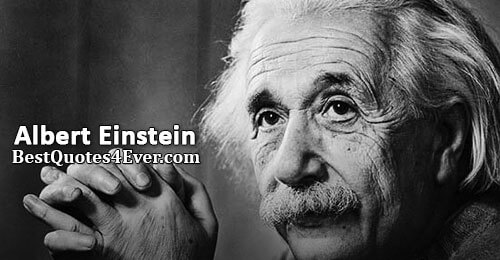 | BiographyType: Physicist Born: 14 March 1879 Died: 18 April 1955 Albert Einstein, (born March 14, 1879, Ulm, Württemberg, Germany—died April 18, 1955, Princeton, New Jersey, U.S.), German-born physicist who developed the special and general theories of relativity and won the Nobel Prize for Physics in 1921 for his explanation of the photoelectric effect. Einstein is generally considered the most influential physicist of the 20th century. Near the beginning of his career, Einstein thought that Newtonian mechanics was no longer enough to reconcile the laws of classical mechanics with the laws of the electromagnetic field. |
The measure of intelligence is the ability to change.
Wisdom is not a product of schooling but of the lifelong attempt to acquire it.
If one tries to navigate unknown waters one runs the risk of shipwreck
As the circle of light increases, so does its circumference of darkness.
Man is here for the sake of other men - above all for those upon whose smiles and well-being our own happiness depends.
When I was young I found out that the big toe always ends up making a hole in a sock.
So I stopped wearing socks.
In scientific thinking are always present elements of poetry. Science and music requires a thought homogeneous.
A little knowledge is a dangerous thing. So is a lot.
As our circle of knowledge expands, so does the circumference of darkness surrounding it.
I believe in intuition and inspiration. Imagination is more important than knowledge. For knowledge is limited, whereas imagination embraces the entire world, stimulating progress, giving birth to evolution. It is, strictly speaking, a real factor in scientific research.
Imagination is more important than knowledge.